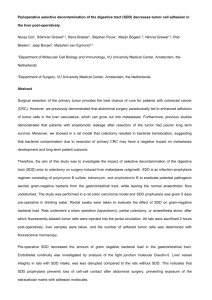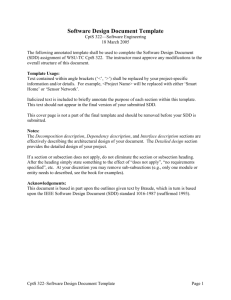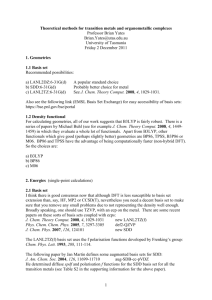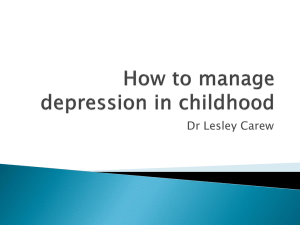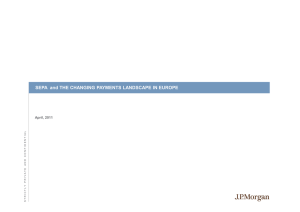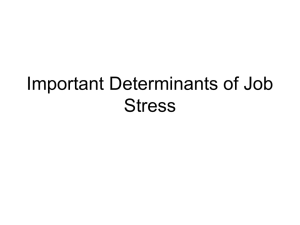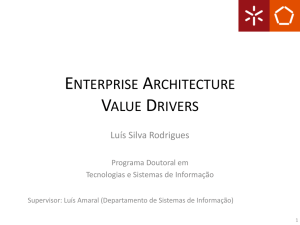SuDDICU - sicsag
advertisement
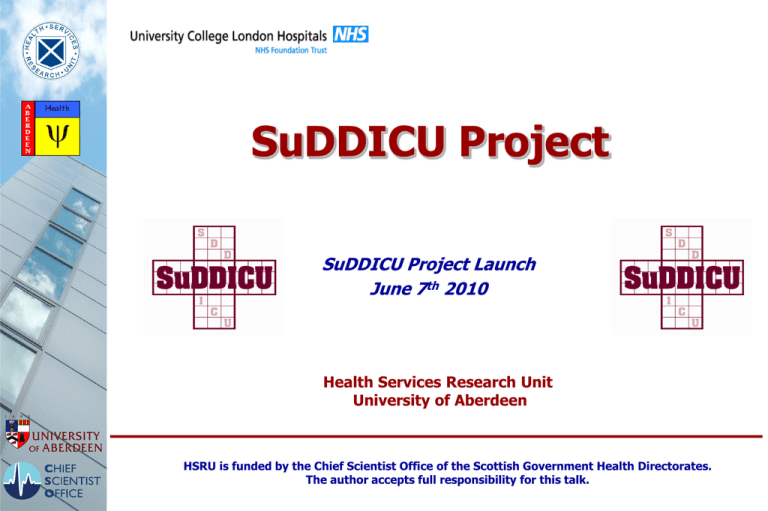
SuDDICU Project SuDDICU Project Launch June 7th 2010 Health Services Research Unit University of Aberdeen HSRU is funded by the Chief Scientist Office of the Scottish Government Health Directorates. The author accepts full responsibility for this talk. Brief overview What ‘s the SuDDICU project again? Health Services Research Unit Background • The Problem: • • • Hospital Acquired Infections (HAIs) are major clinical problem. HAIs have severe consequences in ICU patients. The Procedure: • • Selective Decontamination of the Digestive (SDD) tract is used to prevent HAIs and mortality. SDD is the application of topical non-absorbable antibiotics to the throat and stomach and a short course of intravenous antibiotics. Health Services Research Unit Background • The Evidence: • • • Effectiveness: Meta-analyses show that SDD is effective in reducing HAIs and, in some cases, mortality. Implementation: Despite favourable evidence, SDD is not used frequently – 10-15 ICUs in the UK. Potential Issues: • SDD too complex • • SDD evidence inadequate • • behavioural problem e.g. not generalisable, gaps in intervention designs SDD counterintuitive • fear of multi-resistant organisms Health Services Research Unit Research Questions 1. 2. 3. 4. 5. 6. 7. 8. What are the clinical and behavioural components of SDD? How has SDD been implemented and delivered into practice? What are stakeholders’ views on consequences of SDD? What are stakeholders’ views on barriers to implementing SDD? What are stakeholders’ views on validity & adequacy of evidence? What are the current SDD practices and intentions of intensivists & microbiologists? If there are uncertainties in the evidence base, what trial design(s) and interventions would be preferred to address these? What are the likely challenges in a large multi-national RCT of SDD? Health Services Research Unit 1. 2. STAGE What are the clinical and behavioural components of SDD? How has SDD been implemented and delivered into practice? 3. What are stakeholders’ views on consequences of SDD? 4. What are stakeholders’ views on barriers to implementing SDD? 5. What are stakeholders’ views validity & adequacy of CASE STUDIES OF on UNITS Complete by evidence? 1 DELIVERING SDD SuDDICU Overview August 2010 STAGE 2 DELPHI STUDY OF KEY STAKEHOLDERS’ SDD BELIEFS STAGE 3 NATIONWIDE SURVEY OF CURRENT SDD PRACTICE AND BELIEFS 6. STAGE 4 7. 8. June 2010 August 2011 April 2011 – September 2011 What are the current SDD practices and intentions of intensivists & 2011 September SEMI-STRUCTURED INTERVIEWS microbiologists? WITH INTENSIVE CARE TRIALISTS November 2011 If there are uncertainties in the evidence base, what trial design(s) and interventions would be preferred to address these? What are the likely challenges in a large multi-national Health Services Research Unit RCT of SDD? – Stage 1: Case Studies • • Design: Observational and interview study Procedures: • • • Sample: • • • • • Observation of SDD delivery Interviews with stakeholders Clinical lead Microbiologist Pharmacist ICU nurse 2 ICUs currently delivering SDD involved in SDD implementation and/or delivery Target n = 2 each Outcomes: • • • Behavioural observation, Interview responses, SDD relevant materials and documents Health Services Research Unit Stage 1: Case Studies • Analysis: • Behavioural Analysis of Complex Clinical Procedure Person 1 Time 1 Time 2 Person 2 Person 4 Action 1 Action 2, 3, 4 Time 3 Time 4 Person 3 Action 5, 6, 7 Action 8 Action 9, 10 Action 11 Health Services Research Unit Stage 1: Case Studies • Analysis: • Behavioural Analysis of Complex Clinical Procedure Doctor SDD decision Pre delivery Pharmacist Microbiologist Selects patient Orders and prepares antibiotics Pick up drugs, administer SDD SDD delivery Post delivery ICU nurse Monitoring of antibiotics stocks Disposes of leftovers Monitor ICU environment Health Services Research Unit Delphi • • Goals of the Delphi interview: • Access diverse (rather than representative) expert opinions/beliefs on SDD • Develop a questionnaire that includes the key issues and opinions to be able to assess representative in the next stage of the project (i.e. Stage 3: Nationwide Questionnaire Study). Tap into relevant theoretical domains for three specific behaviours: 1. 2. 3. Providing SDD Participating in an effectiveness trial Participating in an implementation trial Health Services Research Unit Skills Social/Role Identity Knowledge Beliefs about consequences Motivation and goals Beliefs about capabilities Theory Environmental context and resources Memory, attention and decision processes Behavioural regulation Social influences Emotion Health Services Research Unit Michie et al., 2005 Stage 2: Delphi Survey • Design: • • Procedures: 1. 2. 3. 4. • 4 Delphi ‘rounds’ Semi-structured one-to-one telephone interviews Feedback on interviews via email questionnaire Feedback and revisions via email questionnaire International feedback and revisions via email questionnaire Sample: • • • • Clinical lead Microbiologist Pharmacist ICU nurse stakeholders involved in SDD implementation and/or delivery Target n = 10 each Health Services Research Unit Stage 3: Nationwide Survey • Design: • • • Nationwide survey (based on responses from Delphi) Sample: • Clinical leads (n~2000) • Microbiologists (n~180) Procedures: • • One large-scale postal questionnaire Analysis: • • descriptive statistical methods statistical prediction techniques Health Services Research Unit Stage 4: Trialists interviews • Design: • • • Semi-structured interviews Sample: • International trialists (published authors of large randomised trials in critical care, target n = 10) Procedures: • • One-to-one telephone administered interview Analysis: • Transcripts analysed using content analysis Health Services Research Unit Funding update What ‘s the funding situation? Health Services Research Unit SuDDICU International SuDDICU protocol adopted in 3 countries: 1. UK 2. Canada 3. Australia/New Zealand Health Services Research Unit The Geoff Marion Brian Stephan Martin Jill Marie Graeme Craig Louise Kathy Ian Rob Peter Bellingan Campbell Cuthbertson Dombrowski Eccles Francis Johnston MacLennan Ramsey Rose Rowan Seppelt Shulman Wilson Team University College London, UK University of Aberdeen, UK Sunnybrook Health Sciences Centre, Canada University of Aberdeen, UK Newcastle University, UK University of Aberdeen, UK University of Aberdeen, UK University of Aberdeen, UK University of Aberdeen, UK University of Toronto, Canada Intensive Care National Audit & Research Centre, UK University of Sydney, Australia University College Hospital, UK University College Hospital, UK Health Services Research Unit Thank you Any questions? Additional feedback, thoughts, or comments please email Stephan: s.u.dombrowski@abdn.ac.uk Health Services Research Unit
